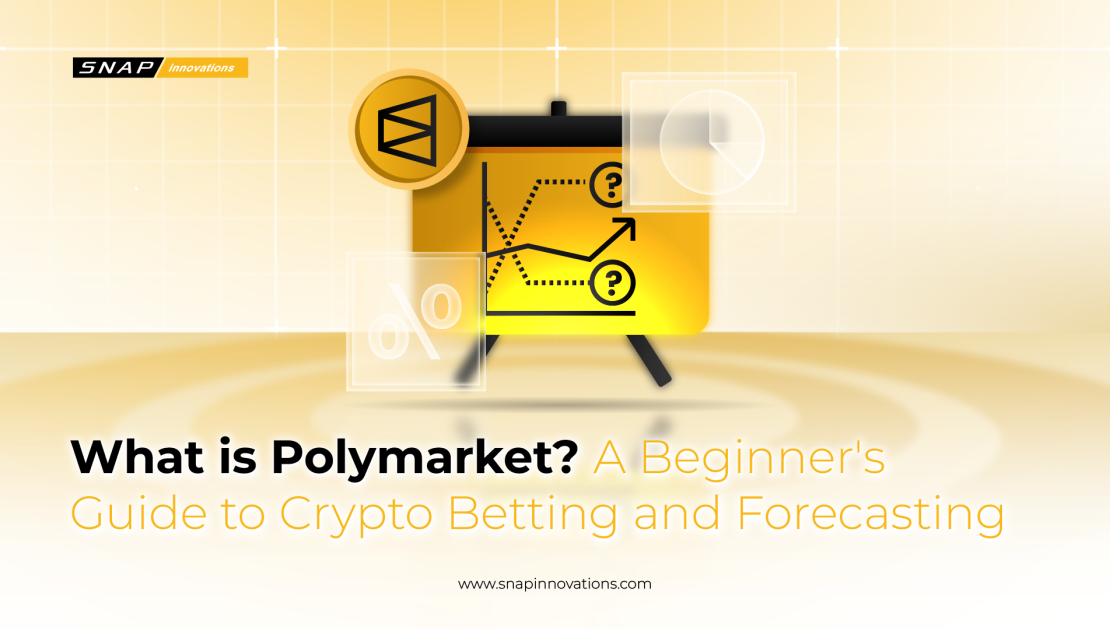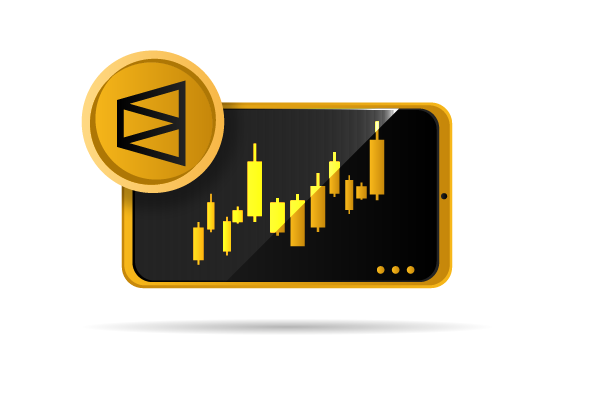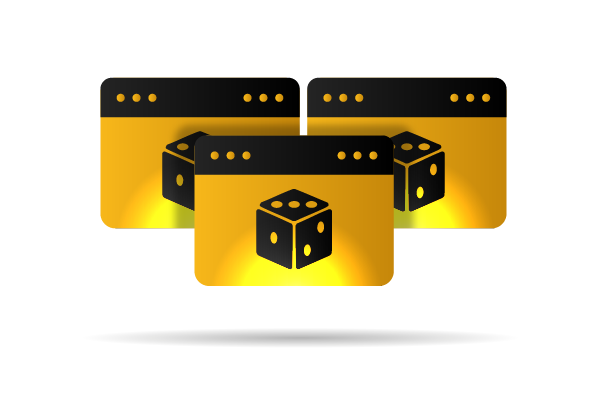What is Polymarket? A Beginner's Guide to Crypto Betting and Forecasting

In the ever-evolving world of blockchain technology and decentralized finance (DeFi), new applications are constantly emerging to challenge traditional systems. One such innovation is Polymarket, a platform that merges prediction markets with blockchain transparency, creating an entirely new ecosystem for forecasting real-world events. Built on the Ethereum Layer 2 network, Polymarket allows users to place monetary bets on the outcomes of future events, ranging from politics and sports to science and entertainment.
Polymarket isn’t just another betting site; it represents a broader concept of information markets where people’s collective beliefs and expectations shape market prices. These markets can provide surprisingly accurate predictions, often more reliable than traditional polls or expert opinions. As more people explore decentralized ways of interacting with the future, understanding Polymarket becomes essential to navigating this cutting-edge space.
What is Polymarket?
 Polymarket is a decentralized prediction market platform built on Ethereum’s Layer 2 solution, Polygon. It enables users to speculate on the outcome of real-world events using the USDC stablecoin. The platform operates without a central authority and utilizes smart contracts to facilitate trades, provide transparency, and ensure secure user interactions.
Polymarket is a decentralized prediction market platform built on Ethereum’s Layer 2 solution, Polygon. It enables users to speculate on the outcome of real-world events using the USDC stablecoin. The platform operates without a central authority and utilizes smart contracts to facilitate trades, provide transparency, and ensure secure user interactions.
Unlike traditional betting systems, Polymarket functions more like a stock exchange where users buy and sell shares of possible outcomes. For instance, users can buy shares in “Yes” or “No” contracts on questions like “Will Donald Trump win the 2024 U.S. Presidential Election?” The price of these shares reflects the market consensus on the likelihood of the event happening. If the event resolves as expected, those who chose the correct side get paid out accordingly.
By leveraging blockchain technology, Polymarket ensures that all data is publicly accessible and immutable, enhancing trust and fairness. This decentralized structure also allows for global participation without the legal limitations or regulatory issues associated with traditional gambling platforms.
How Does Polymarket Work?
Polymarket operates as a decentralized information market where users can speculate on the outcomes of future events. At its core, the platform uses blockchain-based smart contracts to create, manage, and resolve prediction markets in a secure and transparent way. Unlike traditional betting systems, Polymarket behaves more like a trading exchange, where participants buy and sell shares of possible outcomes, and the market price reflects public consensus.
The mechanics behind Polymarket are designed to make event forecasting efficient, secure, and globally accessible. Here’s a breakdown of how the system functions, from entering a market to receiving payouts:
1. Market Creation
Every Polymarket question begins with the creation of a new prediction market. Currently, market creation is curated by the Polymarket team, ensuring that questions are clear, relevant, and resolvable. Each market includes a precise event description, a resolution deadline, and a publicly available source (such as a news outlet or government website) that will be used to verify the outcome.
To avoid confusion or disputes, the platform enforces strict formatting and clarity rules. This is crucial because prediction markets thrive on confidence that the result will be objectively determined. Eventually, Polymarket may allow fully decentralized market creation, but for now, curation protects the platform from spam, scams, and ambiguous events.
2. Buying and Selling Shares
Once a market is live, users can buy or sell shares of either outcome—typically “Yes” or “No.” Each share is priced between $0 and $1, representing the market’s consensus on the probability of that outcome occurring. For example, if a “Yes” share is priced at $0.72, it means the market estimates a 72% chance of that event happening.
These prices constantly fluctuate as more users enter the market and as new information becomes available. If the price of a “Yes” share goes up, it means more users believe that outcome is likely. This real-time pricing mechanism makes Polymarket a reflection of the collective intelligence of its users, similar to how stock prices reflect investor sentiment.
3. Trading and Liquidity
Polymarket uses an automated market maker (AMM) model, rather than matching buyers directly with sellers. This means that users can always trade, regardless of how many other participants are active in the market. The AMM sets the price dynamically based on supply and demand, and users can enter or exit positions at any time before the market closes.
This system is beneficial because it ensures constant liquidity—users don’t have to wait for another trader to match their bet. It also supports active trading strategies, allowing participants to buy low and sell high, or cut their losses if new information changes the perceived likelihood of an outcome. This flexibility makes Polymarket appealing to both casual speculators and serious traders.
4. Event Resolution and Oracles
After the resolution date, the market closes, and Polymarket uses an external oracle to determine the official result of the event. Currently, Polymarket employs a reputable third-party service to verify outcomes based on the predefined resolution source listed when the market was created. If the oracle confirms that the event occurred, “Yes” shares become worth $1, and “No” shares become worthless—or vice versa.
The use of oracles is essential in maintaining decentralization and trust. It removes the need for a centralized authority to decide outcomes. However, it also means that events must be easy to verify. Complex or controversial events can lead to disputes or delayed resolution, which is why Polymarket prioritizes clarity in market wording and uses highly reliable resolution sources.
5. Payout and Settlement
Once the market is resolved, the smart contracts automatically distribute winnings to holders of the correct shares. If you held 10 “Yes” shares in a market that resolved as “Yes,” you would receive $10 (minus minimal fees). There’s no need for manual withdrawal or operator approval—the blockchain handles everything transparently and instantly.
Payouts are made in USDC, a stablecoin pegged to the U.S. dollar, ensuring price stability and easy value assessment. Users can then choose to reinvest, cash out, or move their USDC to another wallet. Thanks to low fees and instant settlements provided by the Polygon network, users enjoy a seamless experience that’s vastly more efficient than traditional betting platforms.
Benefits of Using Polymarket
 Polymarket offers more than just an opportunity to speculate on real-world events. It represents a new class of decentralized applications that blend financial incentives with crowd-sourced intelligence. By leveraging blockchain technology, Polymarket creates a system that is not only more transparent than traditional platforms but also more informative, accessible, and efficient.
Polymarket offers more than just an opportunity to speculate on real-world events. It represents a new class of decentralized applications that blend financial incentives with crowd-sourced intelligence. By leveraging blockchain technology, Polymarket creates a system that is not only more transparent than traditional platforms but also more informative, accessible, and efficient.
Below are five major benefits that highlight why Polymarket is gaining traction among traders, researchers, and curious users worldwide:
1. Decentralization and Trustlessness
Polymarket operates entirely on the blockchain, using smart contracts to manage trades, store funds, and resolve markets. This removes the need for intermediaries or trusted third parties, reducing the risk of fraud, manipulation, or human error. Users can rely on code rather than corporations, making the platform inherently more secure and unbiased.
Because it’s decentralized, no single entity has control over the markets or user funds. This means Polymarket can continue functioning even if its developers were to shut down or become inactive. For users wary of centralized control or censorship, this trustless architecture is a significant advantage.
2. Transparency and Public Verification
Every trade, market condition, and payout on Polymarket is recorded on the blockchain and is publicly accessible. This full transparency allows users to audit the platform’s activity in real time, ensuring that no manipulation or behind-the-scenes interference is possible.
Traditional betting platforms are often black boxes, where users must take the operator’s word on how odds are set or payouts are calculated. On Polymarket, everything is visible—pricing, resolution criteria, trade history, and wallet balances—creating a level playing field for all participants.
3. Low Fees and Fast Transactions
Thanks to its integration with the Polygon (Layer 2) network, Polymarket users enjoy fast transaction speeds and ultra-low fees. This makes it cost-effective for both small-scale traders and larger investors, enabling frequent trades without being penalized by expensive network costs.
On Ethereum’s main network, gas fees can often exceed the value of a small trade, making frequent or casual participation unviable. Polygon solves this problem, allowing Polymarket to function smoothly and scale to accommodate thousands of users with near-instant settlements and fees typically under a penny.
4. Accurate and Crowd-Sourced Predictions
Prediction markets like Polymarket are powerful tools for aggregating information from large groups of people. When real money is on the line, users have strong incentives to stay informed and bet rationally, making the market’s odds a reliable reflection of public belief. In many cases, these markets have proven to be more accurate than polls or expert analysis.
This makes Polymarket not just a betting platform but a forecasting engine. Journalists, researchers, and analysts often refer to Polymarket trends to gauge the likelihood of political outcomes, scientific breakthroughs, or major global events. It democratizes forecasting by allowing anyone to contribute to the collective signal.
5. Global Access and Anonymity
Polymarket is available to anyone with an internet connection and a crypto wallet. Unlike traditional platforms that are restricted by location or require extensive identity verification, Polymarket does not demand Know Your Customer (KYC) checks for most users, making it more accessible to people in countries where prediction markets are banned or regulated.
This level of open participation is rare in the finance or betting world. It means that experts and enthusiasts from around the globe can join the same market, share insights, and compete fairly—regardless of where they live or what legal system they’re under. This inclusivity helps create a truly global intelligence marketplace.
Key Features of Polymarket
Polymarket has a distinct set of features that make it different from traditional betting platforms or financial forecasting tools. These features drive its popularity among crypto enthusiasts and political analysts alike.
Blockchain-Based Smart Contracts
Polymarket is fully on-chain, meaning smart contracts manage all transactions and trade logic. This reduces the need for trust and ensures that the platform operates as programmed, with no room for human manipulation.
USDC Stablecoin Usage
All trades are conducted using USDC, a stablecoin pegged to the U.S. dollar. This ensures that market values are stable and understandable, unlike volatile cryptocurrencies. It also reduces friction for users who might be new to crypto trading.
Low Fees and Fast Transactions
Operating on Polygon (Ethereum Layer 2) gives Polymarket the advantage of low fees and fast confirmation times. Users can trade without worrying about the high gas fees commonly associated with Ethereum mainnet transactions.
No KYC (Know Your Customer)
Because it is decentralized, Polymarket does not require users to submit identification, making it accessible to anyone with a crypto wallet. However, this might change if regulations tighten in the future.
Comparison Between Polymarket and Traditional Betting Platforms
 Polymarket offers a fundamentally different experience compared to traditional betting platforms, primarily due to its decentralized infrastructure and blockchain-based operation. While both systems allow users to speculate on outcomes, the underlying mechanisms, trust models, and user experiences vary significantly.
Polymarket offers a fundamentally different experience compared to traditional betting platforms, primarily due to its decentralized infrastructure and blockchain-based operation. While both systems allow users to speculate on outcomes, the underlying mechanisms, trust models, and user experiences vary significantly.
Below is a detailed comparison to highlight the key distinctions between the two.
| Feature | Polymarket | Traditional Betting Platforms |
| Technology | Blockchain-based, smart contracts | Centralized servers and databases |
| Regulation | Not fully regulated | Heavily regulated (varies by country) |
| Transparency | Fully transparent & on-chain | Opaque operations, trust-based |
| Payout Mechanism | Automatic via smart contracts | Manual, can be delayed |
| Market Creation | Community and curated markets | Operator-driven |
| Geographic Restrictions | Minimal (global access) | Restricted by local laws |
| Currency | USDC (crypto stablecoin) | Fiat currencies |
| Fees | Low (due to Polygon L2) | Higher fees & spreads |
The table above highlights how Polymarket differs significantly from traditional betting platforms. Its decentralized nature ensures more transparency and fewer regulatory constraints, while smart contracts eliminate the need for middlemen. This makes Polymarket more trustless and efficient.
Traditional betting platforms, by contrast, are often limited by regional restrictions, require user identification, and can be prone to delayed or disputed payouts. For users seeking a more open and transparent way to speculate on future events, Polymarket offers a clear advantage.
Risks and Challenges of Polymarket
While Polymarket presents a promising and innovative approach to decentralized prediction markets, it is not without its risks and challenges. One of the most pressing concerns is the regulatory uncertainty surrounding platforms that involve financial speculation. Although Polymarket operates in a gray area, especially in the United States and other heavily regulated markets, it still faces potential scrutiny from financial oversight bodies. In fact, in 2022, the U.S. The Commodity Futures Trading Commission (CFTC) investigated and settled with Polymarket over unregulated derivatives trading, requiring the platform to pay a fine and shut down certain markets.
This incident underscores the risk that similar enforcement actions could happen again, or that new regulations could force the platform to limit features, restrict users in certain jurisdictions, or even cease operations altogether. The evolving nature of cryptocurrency laws and decentralized finance (DeFi) adds to the uncertainty, and users must recognize that legal access to the platform could change depending on where they live and how regulators choose to interpret the law.
Another significant challenge is the reliability and accuracy of oracles, which are third-party data providers used to resolve markets on Polymarket. Since the entire payout system depends on correct and unbiased resolution of outcomes, any failure, delay, or manipulation in the oracle process could result in disputes or unfair losses. While Polymarket currently uses reputable oracles and carefully selects markets that can be resolved based on objective and verifiable sources, the risk of human error, technical failure, or ambiguous event wording can still lead to problematic market outcomes.
Conclusion
Polymarket represents a new frontier in prediction markets and decentralized finance. By allowing users to bet on real-world events using crypto, it merges the transparency of blockchain with the power of crowd-based forecasting. With its intuitive interface, low fees, and global accessibility, Polymarket is not just a speculation platform but also a valuable tool for understanding public sentiment on a wide range of issues.
However, like all emerging technologies, it comes with risks—particularly regarding regulation and data accuracy. As Polymarket continues to grow, users and regulators alike will need to adapt to this novel intersection of technology, finance, and forecasting.
Whether you’re a crypto enthusiast, a political junkie, or just someone curious about the future, Polymarket offers an exciting, decentralized way to engage with the world.
Joshua Soriano
I’m Joshua Soriano, a technology specialist focused on AI, blockchain innovation, and fintech solutions. Over the years, I’ve dedicated my career to building intelligent systems that improve how data is processed, how financial markets operate, and how digital ecosystems scale securely.
My work spans across developing AI-driven trading technologies, designing blockchain architectures, and creating custom fintech platforms for institutions and professional traders. I’m passionate about solving complex technical problems from optimizing trading performance to implementing decentralized infrastructures that enhance transparency and trust.

